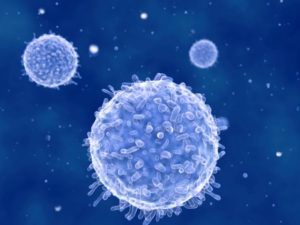Production of chimeric antigen receptor (CAR) T-cells involve genetically modifying the patient’s own T-cells, and these cells have been shown to be effective to treat to multiple types of cancer. However, the success of the first procedural step—collecting the patient’s own lymphocytes using apheresis—often determines the success of this promising new therapy. A study recently published in TRANSFUSION examined the feasibility and success of collecting adequate numbers of CD3+ cells from 71 pediatric patients with B-cell leukemia, lymphoma or solid tumors (which expressed a common tumor antigen, GD2). Almost all collections (97%, n=69) yielded the minimum number of CD3+ cells needed to produce CAR T-cells, and 77% (n=55) of collections reached the target of 2×109 CD3+ cells. Risk factors for below-target collections included low lymphocyte counts and high NK-cell fractions. This study highlights the importance of refining apheresis collections of lymphocytes and the standardization of collection procedures from various centers.
References:
Bersenev A. CAR-T cell manufacturing: time to put it in gear. Transfusion 2017;57: 1104-6.

